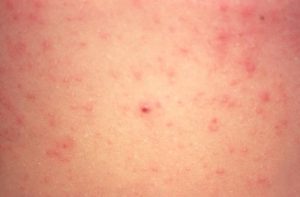Canterbury is a region on New Zealand’s South Island and home to the city of Christchurch. According to health officials today, the region is experiencing a measles outbreak.

The number of confirmed cases of measles in Canterbury now stands at twenty-five and is likely to rise further over the coming days and weeks, according to the Canterbury District Health Board. This is a rise of 10 cases over the weekend.
Canterbury Medical Officer of Health, Dr Ramon Pink says measles is now in widespread circulation and people who aren’t fully immune could be exposed to the risk of infection anywhere in Canterbury.
“Immunization is the only sure way to avoid getting measles. Only people who were born before 1969 or have had two MMR vaccinations are considered fully protected. Those aged between 29 and 50 will only have had one measles vaccination and are not considered immune.”
General practice teams have been asked to prioritize the following groups for MMR immunization, in this order:
- People who are not up-to-date according to the schedule for their age group
- Children and young adults (age range 5 years to 28 years) who are either not immunized or who have only received one MMR dose to date.
- Children 12 months to 5 years who have never received any doses of MMR.
- The four-year-old MMR can be brought forward to no sooner than four weeks after the previous MMR.
- Adults aged 29 to 50 (this group only received one dose of measles vaccine).
Extra supplies of the MMR vaccine in Canterbury are being delivered, with 18,000 doses expected to be available in practices from Wednesday.

“Given their higher risk, our focus over the short term is to provide MMR immunizations to those under 29 years who are not fully vaccinated. People between the ages of 29 and 50 can expect to get a measles vaccine from their general practice in a week or two,” says Dr Pink.
Measles is a serious, highly infectious, potentially life-threatening disease. Up to 30 percent will develop complications – usually children under five. Measles during pregnancy increases the risk of miscarriage, premature labor and low birth-weight in babies.
Under-immunized people exposed to measles first develop a respiratory type illness with dry cough or runny nose or conjunctivitis and a temperature over 38.5 C and a rash. People are considered infectious from 5 days before, until 5 days after, the rash first appears.
- Travel advisory issued for Japan over measles outbreak
- Argentina: Hantavirus outbreak strain characterized
- Rift Valley fever in Mayotte: 82 human cases
- Europe sees nearly 900 measles cases in January, Romania tops list
- Ireland: Mumps cases up dramatically in 2019
- Vaccines: Ohio student, Ethan Lindenberger, testifies in front of US Senate committee
- Louisville student hospitalized with meningococcal meningitis


Just wrote a blog about it.